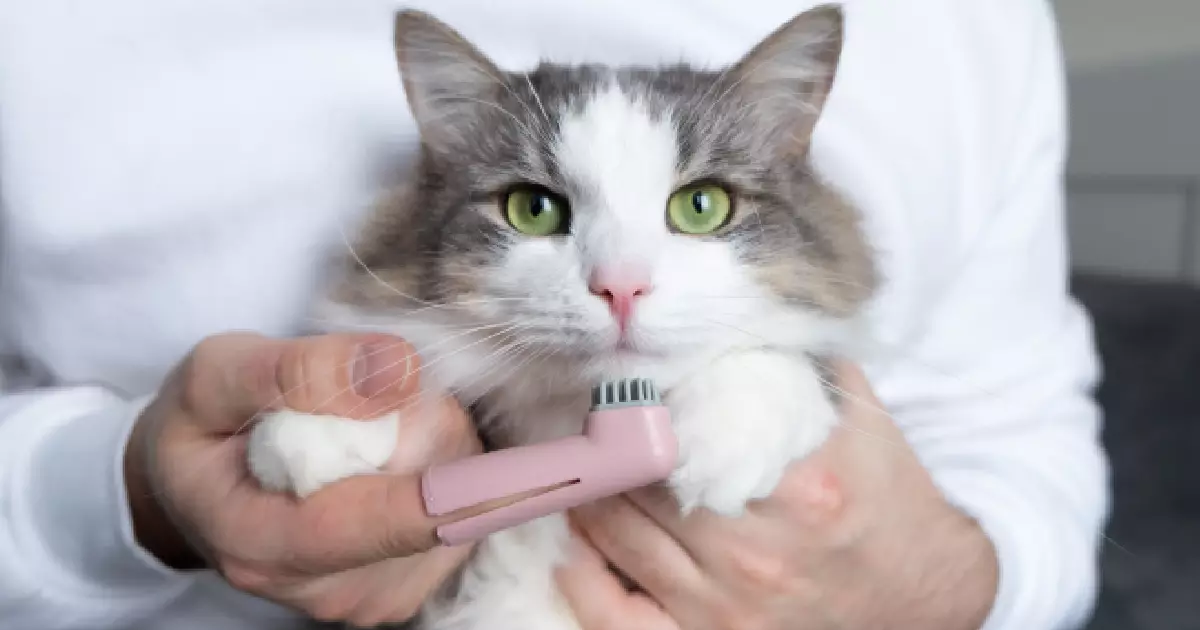February marks Pet Dental Care Month, an occasion often overlooked by pet owners who may not fully grasp the critical role oral hygiene plays in their cats’ overall well-being. Just like humans, cats require regular dental care to fend off diseases that can lead to severe health issues. Dental neglect can result in unpleasant outcomes such as tartar buildup, gum disease, and even organ damage. Hence, the month serves as a timely reminder to pay attention to your cat’s dental hygiene.
Many pet owners remain unaware of how directly dental health affects a cat’s quality of life. Neglecting dental hygiene can trigger a domino effect of health problems. Plaque turns into tartar, leading to periodontal disease, which, if left untreated, can escalate to infections that invade the bloodstream. Such infections can deeply affect vital organs, including the heart, kidneys, and liver. Therefore, maintaining your feline friend’s dental health is not merely a task; it’s an investment in their longevity and happiness.
Understanding the benefits of dental care can motivate pet owners to adopt a consistent cleaning routine:
1. Prevent Oral Diseases and Tooth Loss: Regular brushing is your primary defense against dental problems in cats. By effectively removing plaque, you can prevent gum disease and decay. That could save you from the heartache of dealing with dental pain or expensive veterinary procedures.
2. Fresh Breath: Imagine enjoying those sweet moments with your cat without the distressing odor of bad breath! Consistent dental care helps mitigate halitosis, making those affectionate “kitty kisses” a pleasurable experience for both you and your feline.
3. Detection of Health Issues: Regular checkups during dental routines serve as an excellent opportunity to catch any irregularities early on. Swollen gums or loose teeth can be spotted well before they evolve into more significant health concerns.
4. Enhanced Quality of Life: With a clean mouth, your cat can eat, play, and socialize without discomfort. This translates to a happier feline, which in turn creates a peaceful home environment where both pet and owner thrive.
Before embarking on your dental care mission, it’s essential to gather the right tools:
– Cat-Specific Toothbrushes: Opt for soft-bristled, small brushes designed solely for cats. Several kits come equipped with different types of brushes, allowing you to discover what suits your cat best.
– Cat-Friendly Toothpaste: Never use human toothpaste. Instead, select cat-safe pastes, often available in flavors that appeal to your pet—think poultry or fish—to make brushing more enticing.
– Dental Chews and Treats: These can act as helpful adjuncts to your routine. Products such as Feline GREENIES not only clean teeth but also satisfy your cat’s chewing instincts.
– Dental Wipes: For the more resistant cats, these wipes can provide a less intimidating alternative to traditional brushing. They are user-friendly and still effective at cleaning teeth and gums.
– Water Additives: Adding a vet-recommended water additive to your cat’s drinking water can offer additional support for their oral health by reducing plaque and bacteria.
Getting your cat comfortable with a dental routine might be an uphill battle at first. But with some patience, you can create positive associations:
1. Familiarization: Start slowly. Allow your cat to investigate the toothbrush and toothpaste. Let them taste a small amount of the toothpaste as a treat.
2. Mouth Engagement: Lightly stroke your cat’s face and gently lift their lips over time. This process acclimatizes them to the sensation of having their teeth touched.
3. Brushing: Once your cat seems comfortable, gradually begin brushing their teeth. Start slow, focusing on a couple of teeth and then expanding as they get used to the sensation.
4. Positive Reinforcement: Always conclude the session with praise or a treat. This encourages calmness and makes your cat more willing to participate in future sessions.
If your cat becomes feisty at the mere sight of a toothbrush, don’t be discouraged. Here are a few strategies to mitigate their resistance:
– Use Dental Wipes: As an alternative to brushing, opt for specialized dental wipes that can clean teeth effectively without requiring the same level of cooperation.
– Incorporate Dental Treats: Utilize snacks designed for dental health to engage their interest while naturally combating plaque.
– Schedule Professional Cleanings: Regular vet appointments can provide deep cleanings that are sometimes impossible at home. Professionals can also advise you on the best dental practices for your cat.
– Exercise Patience: Change won’t happen overnight. Gradually desensitize your cat to the process, and over time, they may become more accepting of their dental care routine.
Establishing a dental care routine for your cat may initially seem overwhelming, but it’s undoubtedly a worthwhile endeavor. By integrating simple practices into your pet care regimen, you’re paving the way for a healthier and happier life for your feline friend. This Pet Dental Care Month, take the leap and prioritize your cat’s oral health—your pet’s future will thank you!


Leave a Reply